Even mavericks in business have insurance. Going without proper insurance is not worth the risk. However, do you know where you may still be exposed even though you have coverage? That’s where expert advice can help bridge any gaps you may have that could cost you greatly.
I asked passionate and savvy insurance expert Kimberly Carter to answer a few questions I had on this topic and I’m sharing the answers below. While we are all familiar with insurance on some level, it’s easy to overlook how different business operations are today.
There are many areas of risk that we don’t think to manage because the landscape is too new. There are other areas that we think we have covered, but certain situations might still leave us vulnerable.
Kimberly loves taking on the challenges of this new landscape and protecting business owners. Here are a few of her answers to my questions.
What drives your passion for the work you do?
I started in the insurance industry in 1993 on the Reinsurance side. I thought at the time that I would only be in this profession for a short period, until I figured out what else I wanted to do. However, once started I discovered that I had joined an industry that fascinated me more each year.
There are so many possible directions to take in this industry, everything from working as an Underwriter, working with many agents as a surplus lines insurance broker, to working directly with the insureds. Each facet provides an opportunity for growth and knowledge. I have yet to find a moment that I am bored.
There is also a continuous demand for insurance.
That said, I grew very passionate about what I do and how I continue to educate and grow within the industry. When I meet with a client I go in with the realization that no two situations look alike. There will be similarities, but I am fascinated by the various exposures we face day to day and how to best protect ourselves and our business from those exposures.
As technology changes all our lives, what changes have you seen in the industry that didn’t exist 10 years ago?
According to InsNerds.com there are eight forces changing the insurance industry as follows:
A Change of Systems – The insurance industry is known for running on old systems. Many of the carriers are taking out their old systems and replacing them with new ones.
Telematics and Usage-Based Insurance – Telematics involves plugging a small device into your car’s OBD-II Port, which most cars model years 1996 and newer are equipped with, and allowing the company to track the driver.
Fast, Efficient, and Easy to Use Specialist Wholesalers – One example today that is making waves is PersonalUmbrella.com.
The Internet of Things – Google acquired Nest and is heading full force into the home automation market. The loT is the new era where many things such as appliances will be equipped with tiny processors, sensors and a TCP/IIP internet address. Imagine being able to detect before the incident that your oven is in danger of causing a fire. This is only one example of the new technology and how it will reshape the insurance industry.
Decentralized Value Transfer Systems – These systems are set up to provide an avenue for the transfer of value without the need for a central structure usually provided by a financial institution. These systems may have an impact on the already growing cyber liability concerns.
P2P Insurance – Peer to Peer Insurance is the idea of bringing people together through a social network, online to share risk questions and/or solutions.
The Sharing Economy – For example Airbnb, Uber, Lyft have already started having their days in court. A common question is; when is personal use supplanted by business use, and if clients are using their personally owned property to profit, how does their personal insurance respond?
Wearables – A wearable is any smart device designed to be worn on your body. Such as Fitbit, for example, allowing you collect data on your health and activities throughout the day.

Can you tell me about cyber security and what that means?
One of the coverages that is most commonly misunderstood is Cyber Liability. Cyber insurance coverage may include first-party/post breach response, third-party/liability, first-party/time element, and first- party/theft of property. Most businesses today operate some to nearly all of their products or services through the internet. This leaves a huge exposure for data breach of information. Two most commonly known being personally identifiable information (PII) and personal health information (PHI). More than half of the events involve the unauthorized disclosure of the PII and PHI. Approximately, seventy five percent of the records exposed contained credit card information. Buyers often do not understand the cyber risk or the exposures.
There are also cyber risk management systems and practices that every business owner should review and perhaps implement to prevent a data breach.
No two businesses are the same when it comes to cyber risk, therefore it is key to understand the cyber risks your business faces and to ensure your cyber policy is tailored to mirror those risks. It is imperative to review the policy form AND the exclusions.
What is the best advice you would give a potential client or business owner today?
I recommend that whether it is your personal insurance needs and/or your business insurance needs, to find an agent that can and will help you assess your exposures. It is important to discuss this on an annual basis (at a minimum) in the event there have been changes to your portfolio. An agent should also check to see if you have any gaps in coverage.
More and more people are shopping their insurance on the internet and some buy their insurance directly from an internet site to save time and money. I caution this practice as you do not have an insurance professional there to assist in helping you determine the best coverages for your exposures.
What are the business losses that entrepreneurs can experience and how can they protect themselves?
Regarding small business owners they should consider the following coverages:
1) General Liability Insurance
2) Property Insurance
3) Business Owners Policy (BOP)
4) Commercial Auto Insurance
5) Workers’ Compensation
6) Professional Liability Insurance – also known as Errors and Omissions Insurance
7) Directors and Officers Insurance
8) Data Breach – also known as Cyber Liability
9) Homeowners’ Insurance and Homeowners’ Insurance for Associations
10) Renter’s Insurance
11) Life Insurance
12) Personal Automobile Insurance
13) Personal Umbrella Insurance
14) Difference in Conditions including Earthquake and Flood or monoline Earthquake
 Kimberly Carter is an independent insurance broker at Pacific Global Insurance Brokers. She has been in the insurance industry since 1993. Kimberly started on the company side at Employers’ Reinsurance Corporation (ERC), moved to the wholesale side at Tri-City Brokerage in 1997, and left CRC Swett (aka Swett & Crawford), early this year to join the CEO, Peter Reynolds at PGIB as his Vice President.
Kimberly Carter is an independent insurance broker at Pacific Global Insurance Brokers. She has been in the insurance industry since 1993. Kimberly started on the company side at Employers’ Reinsurance Corporation (ERC), moved to the wholesale side at Tri-City Brokerage in 1997, and left CRC Swett (aka Swett & Crawford), early this year to join the CEO, Peter Reynolds at PGIB as his Vice President.
Connect with Kimberly by phone at 818-584-2887, by visiting her website, pgpartners.com, or connect with her on Facebook, facebook.com/kmbrlykrc.
CA License: 0C15050


